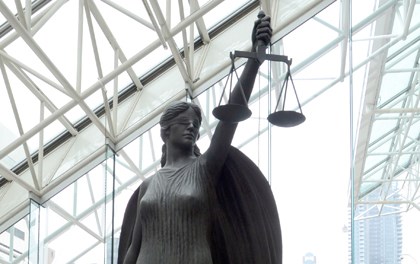Stripping B.C.’s teachers of the right to bargain class size and composition was constitutional, the B.C. Court of Appeal has ruled — though the fight may be destined for the Supreme Court of Canada.
Thursday’s decision was the latest step in a years-long labour battle between the B.C. Teachers’ Federation and the province.
The government passed Bill 22 in 2002, which stripped class size and composition out of the collective bargaining agreement and banned it from future contract negotiations. The teachers argued that was a violation of the charter right to freedom of association, and earned a lower court ruling affirming that in 2012.
The province appealed on the grounds that it properly consulted the teachers before passing the bill.
“In our opinion, the legislation was constitutional,” Justice Mary Newbury said, writing for the majority in the 4-1 split decision. “Between the consultations and the collective bargaining leading up to the legislation, teachers were afforded a meaningful process in which to advance their collective aspirations. Their freedom of association was respected.”
Premier Christy Clark and Education Minister Peter Fassbender held a press conference on Thursday morning to praise the ruling. Both suggested it would be ideal to move on and focus on students’ needs.
“I think we should take this opportunity to put disputes behind us and work together and aspire for the best education system anywhere in the world,” Clark said.
But about 20 minutes later BCTF president Jim Iker responded, saying the teachers will ask to appeal the decision to the Supreme Court of Canada.
Iker characterized the move as important for all working Canadians who could lose their right to free collective bargaining.
“After today’s quick analysis, it seems this ruling swings the power too far against workers’ rights. A government should not be able to just dictate what they want, simply talk to the union and force it by legislation when there are collective agreements in place,” he said. “We’re absolutely committed to take this to a higher level.”
West Vancouver teachers say, meanwhile, the students will remain stuck in underfunded classrooms.
“It doesn’t really change anything as far as what’s going in on in the system with underfunding,” said Rob Millard, West Vancouver Teachers’ Association president. “I guess the glimmer of hope is the insight of strong dissenting opinion from Justice (Ian) Donald….You know what they say — it ain’t over till it’s over.”



